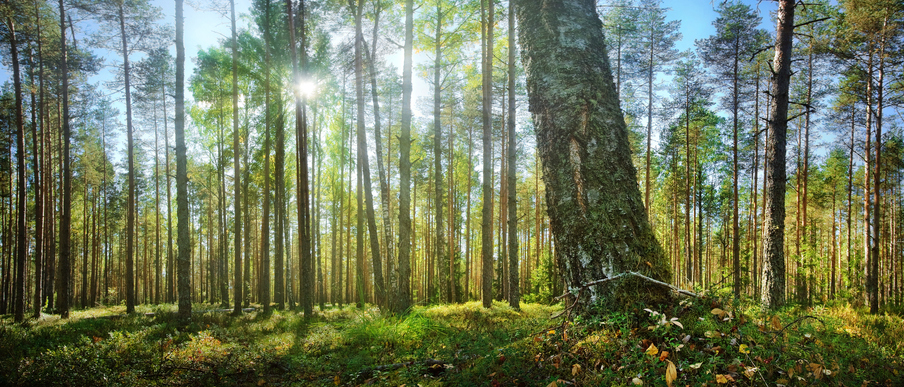National crises are often accompanied by the claim that we’re all in it together. Of course, the realities of life mean it is impossible that being ‘in it’ will be a universal experience. A case in point during the coronavirus crisis is access to, or ownership of, outdoor, especially green, space. What has been termed ‘green privilege’, and the impact on mental health, is real and important.
A frequent cri de coeur from Government and others at times of national crises is one that “we are all in it together”. It’s an understandable turn of phrase, trying to establish a sense of unity and community and ask people to endure hardship and inconvenience for the greater good, and on the basis that everyone is having to do the same.
Of course, rarely are we all in it together.
In WW2, being ‘in it’ in 1940 varied enormously depending on whether you were a country parson living in a village in Worcestershire or a docker living and working in London’s Limehouse district. In 1944, your experience of ‘in it’ would have been quite different if you were an RAF cook based in the Orkneys to that of a member of the 1st Gordons on D-Day. The 2007-2008 financial crash was experienced differently if you were one of the 700,000 people who’d lost their jobs by 2010 or, say, the CEO of a failed UK bank asked to leave his post with a piddling pension of approximately £700,000 per annum to fall back on.
COVID 19
And so it has been with the Covid-19 crisis. Many furloughed are finding themselves without work to return to as retail chains shut down, or pubs do not reopen. Others able to work from home and whose employment is secure are better off thanks to monthly savings from not having to commute or buy coffee and sandwiches on the way into the office or stopping off for a swift one or three on the way home. (Consumers repaid £16.6 billion-worth of credit card debt and loans last year).
Healthcare outcomes are even more disparate, varying according to socio-economic group, congenital and pre-existing health conditions, gender, age, weight and ethnicity. A zero-impact virus for one person is the end for someone else.
And one other way in which we are divided by the virus is by what one commentator has described as ‘green privilege’. Basically, this relates to your access to outdoor space and, particularly, greenery.
The way people have been desperate to get to parks, beaches and the countryside during the lockdowns reveals a deep need to be outside, engage with nature and escape the confines of our own four walls. Furthermore, and importantly, this access to nature or, at least, a patch of green – green privilege – is not just a ‘nice to have’: it’s a ‘must have’ according to experts in mental health and well-being.
Forest therapy
Last year, the Harvard Health Blog published a piece on the growing practice of ‘forest therapy’, with research showing that it reduces stress, improves attention, boosts immunity, and lifts mood. Stress raises levels of the hormone cortisol and long-term elevations of cortisol play a role in high blood pressure and heart disease. In tests, for instance, cortisol levels decrease in forest walkers compared to people in lab settings.
Yet we don’t need to go to the forests of Bowland, Dean or Epping to benefit. Research on 20,000 UK adults published by Nature’s Scientific Reports arm in June 2019 revealed that a mere 120 minutes exposure to nature, any nature, per week improved health and well-being. That 120 minutes could be two hours in a block or just 20 minutes a day.
It works for hospital patients too. Surgical convalescents in a bed with an outdoor view recover quicker that those looking out onto brick, while needing less powerful pain relief.
Green roofs
Finally: green roofs. Research subjects were asked to look at green or concrete roofs for 40 seconds. Unsurprisingly, given all of the above, it was found that considering a green roof was “restorative” and boosted attention, while the opposite occurred in the concrete subjects.
The correlation between outdoor space, nature and mental health and wellbeing is undeniable. In a society where it is now fashionable to caringly post socially about mental health of employees, of reality TV stars, of the person at the desk or on site next to us; it should not be beyond us to consider the provision of something so simple – so natural – as greenery for the soul.
In the post-Corona enquiries, there should be some tough questions to answer about the haves and have nots – and the existence of ‘green privilege’ among them.
Boris has promised a building bonanza and a bonfire of planning bureaucracy. In the course of that, the politicos, the planners and the construction industry need to have a serious – it need not be difficult – conversation about master planning, urban realm, green urbanisation and whether the lack of provision for a window box, let alone a garden, is going to be good enough in the new normal. Green privilege should be for everyone.
Ends.

